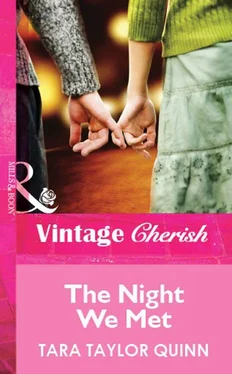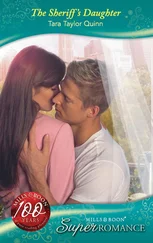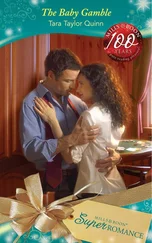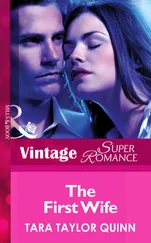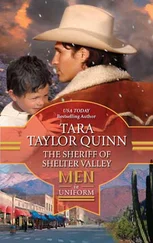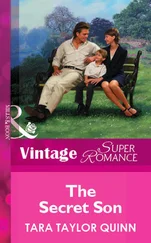“He was a good kid,” Nate continued. “Far too young to die.”
“Did you see him after he left?” I wondered if that might make a difference.
“No. But he wrote every week. I wrote back, but based on the things he said in his letters, I don’t think he ever got mine.” My heart hurt hearing those words.
“Do you know what happened?”
Nate shook his head. “Just that he died honorably, and in battle. I have no idea where he was or what the battle was about.”
That was true for so much of this war that had been troubling our nation for too many years now.
“What are you two talking about that’s so all-fired serious?” Arnold shouted across the table, draining the last beer from his bottle. “Don’t forget, man, she’s a nun.”
Nate switched gears to jest with his friends, and I smiled as the others teased him about an ego so big he thought he could get a nun, even laughed out loud when he joked back. And I felt like some kind of freak, missing half a body. It was time for me to go.
“The piano’s calling, buddy!” Arnold said as he grabbed the second bottle of beer he’d ordered, not that I was counting. Nate stood and Arnold leaned toward me. “Nate plays here most Saturday nights when he’s in town. Wait till you hear him.”
I watched the six-foot-tall, perfectly proportioned, athletic man stroll to the piano, watched him wave as a couple of people called out to him. Watched his face break into an odd, almost peaceful smile. Even getting up to perform, there was nothing pretentious about Nate Grady.
And as he sat down, placed strong-looking fingers on the keys, I knew I couldn’t leave yet. I’d be in trouble if I missed my ten o’clock curfew, but it was only a little past eight.
The first notes were muffled by the crowd, but by the time he’d reached his second stanza, the noise had stopped as everyone turned to listen. Nate played everything from current hits and love ballads to the big band forties songs I’d heard from my parents growing up. And he sang—in a voice so rich and deep I felt as though God was in every note.
I told myself I’d stay for one set. Long enough to tell him I thought he was wonderfully talented and to thank him for playing. I paid my bill so I’d be ready to go as soon as he finished. I still had time.
He broke into a rowdy rendition of “Great Balls of Fire” and before I knew it, I was laughing and cheering with the rest of the crowd. The break was good for me. And I loved the song. It had just hit number one, not that I’d ever really followed the pop charts. But that week I seemed to be more aware of everything worldly around me—maybe because I was looking at it all with an eye to leaving it behind.
After announcing a short break, Nate came back to the table. Words of goodbye were forming on my lips. Someone had borrowed the chair he’d been using, but then he found another one and pulled it up next to mine. I couldn’t just leave.
The guys were placing bets on which of the three jerks who’d been talking up a sweet young thing at the ski resort had won her favors for that night.
“She went home with her sister,” Nate said dryly. “I saw them go.”
“How d’you know she was her sister?” Arnold challenged in a good-natured way.
“She told me. She’s getting married next week, and she and her sister, who’s her maid of honor, went to Tahoe for a couple of days. It’s their last time together as just the two of them.”
Arnold and his pals were distracted when the waitress reappeared.
“Were you trying to get her to go out with you?” I asked Nate. My gall shocked me.
“I asked her if she was going to be all right leaving with those guys making such asses of themselves,” he said just loudly enough for me to hear.
“Oh. That was a nice thing to do.”
“It’s habit. Girls skiing without a male escort seem to attract the worst kind of male attention.”
He should know; he managed a ski resort. I couldn’t help wondering how many managers watched out for the girls, and how many hit on them. More the latter, I expected.
A few minutes later, Nate excused himself to play again. Before he left, he asked if I’d be there during his next break. Without glancing at my watch, I nodded. I had about an hour.
The crowd slowly quieted as Nate played that second set, thinning out some, but not much. Couples swayed together on the dance floor. Chairs circled the piano. And then, just after nine-thirty, as Nate struck a new chord, he looked straight at me.
And started to sing.
“My Cup Runneth Over.” He sang the whole song directly to me.
It didn’t mean anything. How could it? We’d just met. He’d never seen me in the morning. Or any other time of day, for that matter.
And never would.
Still, I listened to every cadence, every lilt and syllable, and knew that this was a night I’d never forget.
“I have to go,” I said, standing to put on my serviceable short black coat as he made his way back to the table. “I don’t want to miss my curfew.”
“I’ll see you later,” Nate told his friends, standing behind me. I wasn’t sure what was going on until he followed me outside.
Nate walked me home. The couple of blocks had seemed insignificant when I’d traversed them with crowds of people earlier that evening. Now the quiet stretch of road, cloaked in the darkness of night, seemed far too intimate.
Nate kept a respectful distance, his jacketed arm not even bumping into mine.
“The guys told me about this cliff you skied today,” I began. “They said you’d have won a medal if you’d been in the Olympics.”
“In case you haven’t figured it out, they exaggerate.”
“But not many skiers make it over that particular drop-off upright, or so I hear.”
“Plenty do. And plenty fall, too.”
“How’d it feel, to be flying in the air like that? Were you scared?” I’d had butterflies in my stomach listening to Arnold talk about it.
“Truthfully?” He glanced down at me.
“Yeah.”
“Anyone else would probably figure I’m crazy, but I have a feeling you’re going to understand this. As soon as I started that run, I was so busy being aware of the wind gliding by—almost as though it was holding me up—and the crisp cold against my face, I didn’t even think about landing until it happened. And then it was like any other slope. You do what you have to do to stay on your feet.”
What he’d just described sounded like a moment of pure, spiritual bliss. Such intense involvement in the here-and-now that you were actually taken beyond it.
I’d petitioned to join a convent so I could learn how to have moments like that. There was something about this man, something deeper than anything I’d encountered in normal life, that was reaching out to me.
Almost as if he had answers to some of the mysteries I so desperately wanted to solve. Subconscious answers, maybe. But had them, just the same.
“I’ve enjoyed talking with you, Eliza Crowley,” he said as we arrived at the heavy iron gate in front of St. Catherine’s.
“And I’m glad I met you, Nate Grady.” There didn’t seem to be much harm in admitting that. I was never going to see him again.
“My flight back to Boulder leaves tomorrow evening,” he said unexpectedly as I slipped through the gate and shut it behind me. “Any chance you could get away before then? Maybe we could take a walk.”
Looking at him through the iron bars, all I could get out was, “I…”
“I’m sure you’re on a pretty rigid schedule.” He seemed to take pity on me. “It’s okay if you can’t. I won’t be offended.”
“I’m…I have…an hour free after lunch.” I finally stumbled over the words. Who on earth was this woman uttering them? “We could meet down at the corner and walk through the gardens.”
Читать дальше
